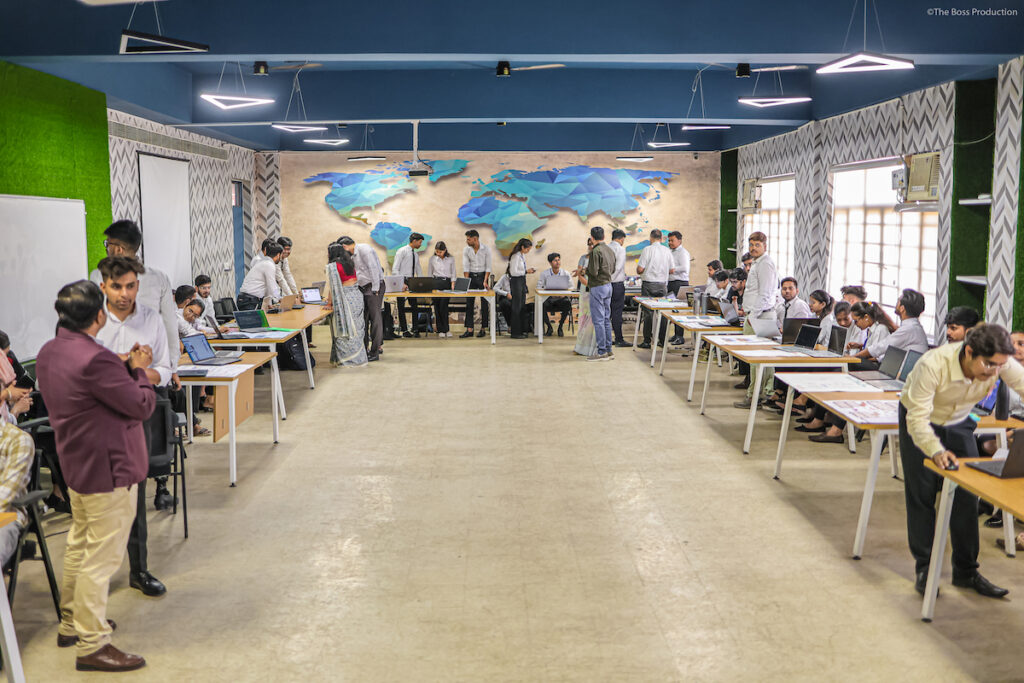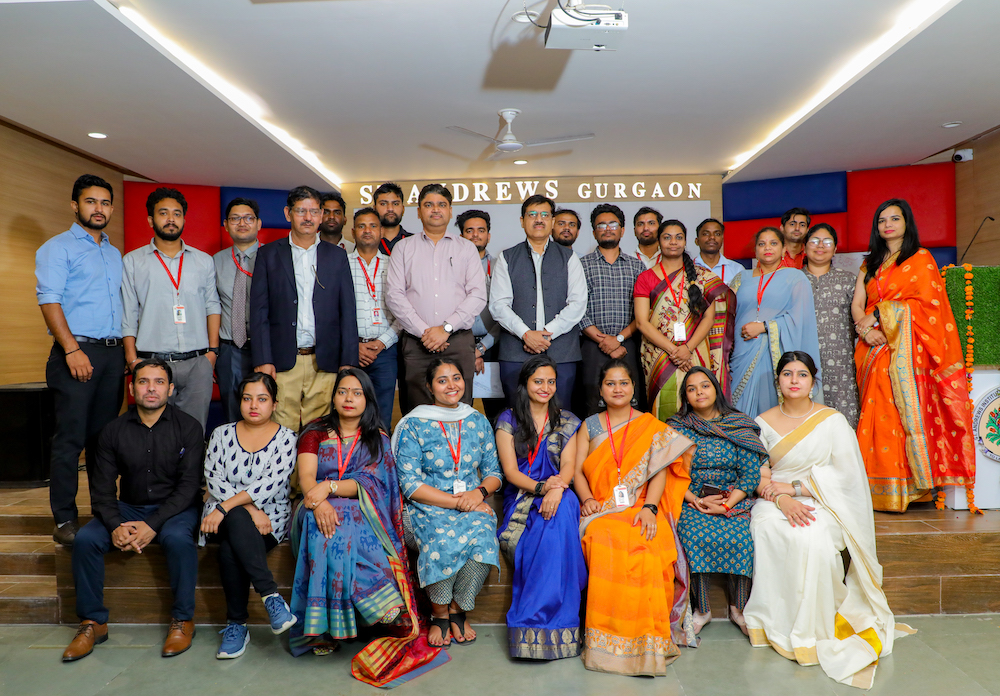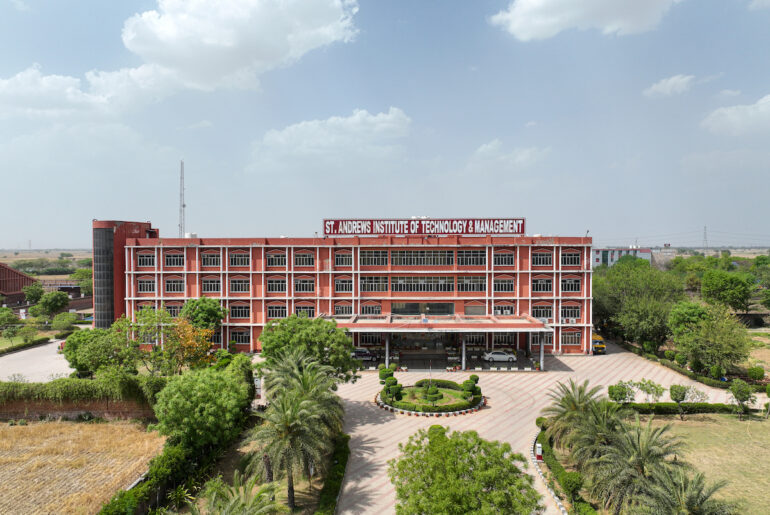MBA Programs
MBA programs are designed to provide students with the skills and knowledge needed to succeed in business leadership roles.
Here are some key points about MBA programs:
Curriculum
In a regular MBA program, the core curriculum typically encompasses subjects like accounting, finance, marketing, human resources, and operations management. Additionally, numerous programs provide elective courses enabling students to specialize in fields like entrepreneurship, international business, or technology management.
Formats
MBA degrees come in various formats to suit different needs. Full-time programs typically last two years, while part-time or EMBA courses can last 3-5 years and are designed for working professionals. There are also accelerated MBA courses that can be completed in a shorter period.
Admission Requirements
These usually include a bachelor’s degree, CAT or MAT scores, work experience (especially for executive MBAs), letters of recommendation, and personal essays. Some programs may have specific prerequisites or require interviews.
Benefits
Those who pursue MBA frequently experience substantial enhancements in career prospects, earning potential, and networking opportunities. Additionally, embarking on an MBA journey equips individuals with vital skills for initiating or overseeing business ventures.
Global Opportunities
Many schools offer opportunities to study abroad, participate in international consulting projects, or network with a global cohort of students.
Costs
MBA courses can be expensive, but many students see a strong return on investment through higher salaries and better career opportunities. Scholarships, grants, and employer sponsorship can also help offset costs.
Rankings and Accreditation
Prospective students often look at rankings and accreditation to gauge the quality and reputation of MBA degrees. Accreditation from bodies like AACSB, AMBA, or EQUIS is particularly valued.
Some of the most opted courses in India and St. Andrews collegeor different Engineering college or Management colleges are as follows:-
MBA Programs Details

MBA degrees in India are renowned for their rigorous curriculum, high-quality teaching, and strong industry connections.
Here’s a detailed look at the MBA landscape in India, including popular programs, admission criteria, top institutions, and more.
1. Types of MBA programs in India
Full-Time MBA: Typically a two-year program, offering a comprehensive grounding in business and management concepts.
Executive MBA: Designed for working professionals with more substantial work experience, these programs are usually part-time or modular.
Distance MBA: Offered by several universities and institutions for students who need a flexible schedule due to geographical or time constraints.
Specialized MBA: Focused on sectors like Finance, Healthcare, Agriculture, and Information Technology, among others.
2. Admission Process for MBA Programs
Entrance Exams: The most common entrance exams are the Common Admission Test (CAT), the Management Aptitude Test (MAT), the Xavier Aptitude Test (XAT), and the Common Management Admission Test (CMAT).
Academic Record: A strong undergraduate performance is typically required.
Work Experience: Valued for admission, especially for executive programs.
Group Discussions and Personal Interviews: Often used to assess a candidate’s suitability for MBA degrees.
3. Core Curriculum and Electives
Core Courses: Include subjects like Organizational Behavior, Marketing, Finance, Human Resources, Operations Management, and Strategic Management.
Electives: Allow students to specialize in areas such as International Business, Rural Management, Sustainable Development, or Data Analytics.
4. Best Online MBA colleges in India and full-time colleges.
Indian Institutes of Management (IIMs): Including IIM Ahmedabad, IIM Bangalore, IIM Calcutta, and others. These are highly prestigious and are considered the top tier of MBA education in India.
St. Andrews Institute of Technology and Management, Gurgaon (SAITM): SAITM is a well-regarded educational institution located in Gurgaon, India. The MBA program at SAITM is particularly notable for its comprehensive curriculum that equips students with essential business and management skills.
Indian School of Business (ISB): Located in Hyderabad, known for its rigorous curriculum and strong placement record.
Faculty of Management Studies (FMS), Delhi: Offers high-quality education with a significantly lower fee structure.
XLRI Xavier School of Management: Renowned for its Human Resources program.
S.P. Jain Institute of Management and Research (SPJIMR), Mumbai.
5. Placement and Career Opportunities
Corporate Recruitments: Leading companies across various industries recruit from Indian MBA institutions, offering roles in management, consulting, strategy, and more.
Salary Prospects: Graduates from top institutions can expect significantly high salary packages, especially in roles like management consulting, investment banking, and technology management.
Entrepreneurship: Many MBA courses now include incubation centres to support students interested in starting their own businesses.
6. Costs and Financial Aid
Tuition Fees: Can range from INR 10 lakhs to 25 lakhs for the entire program in top institutions. Government colleges often have lower fees.
Scholarships and Financial Aid: Available based on merit or financial need at most institutions.
7. Choosing the Right Program
When selecting an MBA program in India, consider the curriculum, faculty, placement records, alumni network, and the specific needs of your career path. Attending information sessions, talking to current students and alumni, and visiting campuses can provide deeper insights.
MBA Programs Admission Process

The MBA admission process in India is distinct and quite structured, given the competitive nature of the programs.
Here’s a detailed look at the steps involved:
1. Entrance Exams
Most Indian MBA courses require applicants to clear entrance exams, which are crucial for securing admission. Some of the most common entrance exams include:
- CAT (Common Admission Test): Predominantly for the Indian Institutes of Management (IIMs) but also accepted by many other top MBA colleges across India.
- XAT (Xavier Aptitude Test): Conducted by XLRI, Jamshedpur for admission into XLRI and other participating institutes.
- CMAT (Common Management Admission Test): A national level entrance test for admission to MBA (Master of Business Administration) programs in various AICTE-approved institutions.
- MAT (Management Aptitude Test): Conducted by AIMA and accepted by a large number of top business schools.
2. Application Form
After qualifying one of the entrance exams, candidates need to fill out application forms for the individual institutions where they wish to apply. The application typically requires:
- Personal details
- Educational background
- Work experience details
- Entrance exam scores
- Statement of Purpose (SOP)
- Letters of Recommendation (optional or as required)
3. Group Discussion (GD) and Personal Interview (PI)
Many MBA institutes in India include these stages as part of the admission process:
Group Discussion: This is used to assess a candidate’s communication skills, leadership qualities, team spirit, and problem-solving abilities.
Personal Interview: This is a face-to-face interaction to understand the candidate’s personality, career objectives, and motivation for pursuing an MBA.
4. Written Ability Test (WAT)
Some institutes also include a Written Ability Test where candidates need to write essays on given topics. This test assesses writing skills and the ability to think critically.
5. Final Selection
The final selection is typically based on a combination of the following factors:
- Entrance exam score
- Performance in GD/PI
- Academic record
- Work experience
- Performance in WAT (if applicable)
6. Additional Criteria
Some programs may also consider:
- Relevant extracurricular activities
- Leadership roles
- Social service
- Diversity factors such as gender, cultural background, etc., to enrich the learning experience.
7. Acceptance and Enrollment
Once selected, candidates will receive an admission offer, which they must accept by paying a fee to secure their seat. This is followed by the enrollment process where candidates submit their documents and complete other formalities.
MBA Specialisations

MBA specializations allow students to focus their studies on a particular area of business to develop expertise and pursue career paths aligned with their interests and goals.
Here are some common MBA specializations:
Finance
Focuses on financial management, investment analysis, risk management, and financial markets.
Marketing
Concentrates on understanding consumer behavior, market research, branding, advertising, and sales strategies.
Human Resource Management (HRM)
Covers areas such as recruitment, talent management, performance appraisal, organizational behavior, and labor relations.
Operations Management
Deals with managing production processes, supply chain logistics, quality control, and efficiency improvement.
Strategy
Emphasizes strategic management, business development, competitive analysis, and long-term planning.
Entrepreneurship
Focuses on starting and managing new ventures, business planning, innovation, and entrepreneurial finance.
International Business
Covers global market analysis, cross-cultural management, international trade, and global strategy.
Information Technology (IT) Management
Addresses topics such as IT strategy, digital transformation, cybersecurity, and technology innovation.
Healthcare Management
Concentrates on healthcare policy, healthcare delivery systems, hospital management, and healthcare marketing.
Supply Chain Management
Focuses on logistics, procurement, inventory management, and supply chain optimization.
Business Analytics
Involves data analysis, predictive modeling, data visualization, and decision-making using quantitative methods.
Corporate Social Responsibility (CSR)
Examines ethical business practices, sustainability, social impact measurement, and CSR strategy.
Project Management
Covers project planning, execution, risk management, and project leadership skills.
Real Estate Management
Focuses on property development, real estate finance, investment analysis, and real estate law.
E-commerce and Digital Marketing
Explores online business models, digital marketing strategies, social media marketing, and e-commerce platforms.
MBA Courses Top Recruiters and Salary

Top MBA recruiters in India vary depending on the specialization and the reputation of the business school. However, some companies consistently hire MBA graduates across different sectors.
Here are some of the top recruiters and the average salary ranges for MBA graduates in India:
Consulting Firms
McKinsey & Company, Boston Consulting Group (BCG), Bain & Company, Accenture Strategy, Deloitte, and KPMG. Average salary range: ₹12-25 lakhs per annum.
Finance and Investment Banking
Goldman Sachs, J.P. Morgan, Morgan Stanley, Citibank, HDFC Bank, ICICI Bank, and Axis Bank. Average salary range: ₹10-20 lakhs per annum.
FMCG (Fast-Moving Consumer Goods)
Hindustan Unilever Limited (HUL), Procter & Gamble (P&G), ITC Limited, Nestlé, and PepsiCo. Average salary range: ₹10-20 lakhs per annum.
Technology and IT Consulting
Google, Microsoft, Amazon, Tata Consultancy Services (TCS), Infosys, Wipro, and Cognizant. Average salary range: ₹10-20 lakhs per annum.
E-commerce and Retail
Amazon India, Flipkart, Reliance Retail, Aditya Birla Group, and Future Group. Average salary range: ₹10-20 lakhs per annum.
Healthcare and Pharmaceuticals
Apollo Hospitals, Cipla, GlaxoSmithKline (GSK), and Novartis. Average salary range: ₹8-15 lakhs per annum.
Manufacturing and Automobiles
Tata Motors, Mahindra & Mahindra, Larsen & Toubro (L&T), and Maruti Suzuki. Average salary range: ₹8-15 lakhs per annum.
Telecommunications
Bharti Airtel, Vodafone Idea, and Reliance Jio. Average salary range: ₹8-15 lakhs per annum.
Real Estate and Infrastructure
DLF Limited, Larsen & Toubro (L&T) Construction, and Godrej Properties. Average salary range: ₹8-15 lakhs per annum.
Media and Entertainment
Sony Pictures Networks India, Star India, and Viacom18. Average salary range: ₹8-15 lakhs per annum.
Job Profiles for MBA Graduates

MBA graduates are sought after for a wide range of job profiles across various industries due to their versatile skill set and strategic thinking abilities.
Here are some common job profiles for MBA graduates:
Management Consultant
Advises organizations on strategic decisions, business operations, and performance improvement initiatives.
Marketing Manager
Develops marketing strategies, plans promotional campaigns, and analyzes market trends to maximize product or service visibility and sales.
Financial Analyst
Conducts financial analysis, prepares reports, and provides recommendations on investment decisions, budgeting, and financial planning.
Operations Manager
Manages day-to-day operations, streamlines processes, and ensures efficient resource utilization to meet organizational objectives.
Human Resources Manager
Oversees recruitment, employee relations, performance management, training, and development initiatives to support organizational growth and employee satisfaction.
Product Manager
Drives product development, defines product roadmaps, conducts market research, and collaborates with cross-functional teams to launch successful products or services.
Business Development Manager
Identifies new business opportunities, builds strategic partnerships, and negotiates contracts to expand the company’s market presence and revenue streams.
Supply Chain Manager
Manages the end-to-end supply chain process, including procurement, logistics, inventory management, and supplier relationships, to ensure seamless operations and cost optimization.
Investment Banker
Facilitates mergers and acquisitions, raises capital, and provides financial advisory services to corporate clients, investors, and financial institutions.
Entrepreneur/Startup Founder
Establishes and manages their own business venture, including business planning, fundraising, operations management, and strategic decision-making.
Project Manager
Leads cross-functional teams, defines project scope, schedules, and budgets, and ensures project delivery within constraints such as time, cost, and quality.
Corporate Strategist
Develops and executes long-term strategic plans, conducts market analysis, assesses competitive threats, and identifies growth opportunities for the organization.
Risk Manager
Identifies and mitigates organizational risks, develops risk management strategies, and ensures compliance with regulatory requirements and industry standards.
Brand Manager
Builds and manages brand identity, develops marketing campaigns, monitors brand performance, and conducts market research to maintain brand relevance and competitiveness.
Management Trainee/Leadership Development Program Participant
Participates in structured training programs designed to groom future leaders and provide exposure to various functions within the organization.
Courses After MBA Program

After completing an MBA program, individuals may choose to pursue further education or professional certifications to enhance their skills, specialize in a specific area, or explore new career opportunities.
Here are some post-MBA courses and certifications that graduates may consider:
Executive Education Programs
Many business schools offer executive education programs tailored for mid-career professionals seeking to deepen their knowledge in specific areas such as leadership, innovation, or digital transformation.
Ph.D. in Management or Business Administration
For those interested in research or academia, pursuing a Ph.D. can provide opportunities to contribute to the field of management through scholarly research and teaching.
Professional Certifications
Obtaining certifications in areas such as project management (PMP), financial analysis (CFA), human resources (SHRM-CP), or supply chain management (CSCP) can enhance expertise and credibility in specialized domains.
Specialized Master’s Programs
Pursuing a specialized master’s degree in areas like finance, marketing, data analytics, or entrepreneurship can provide deeper knowledge and skills in specific areas of interest.
Language Courses
Learning additional languages such as Mandarin, Spanish, or French can enhance international business opportunities and cross-cultural communication skills.
Industry-Specific Courses
Taking industry-specific courses or workshops can provide insights into emerging trends, technologies, and best practices relevant to particular sectors such as healthcare, real estate, or technology.
Online Courses and MOOCs
Enrolling in online courses or Massive Open Online Courses (MOOCs) offered by platforms like Coursera, edX, or LinkedIn Learning can provide flexible learning opportunities to acquire new skills or explore new topics of interest.
Leadership Development Programs
Participating in leadership development programs offered by organizations or industry associations can help hone leadership skills and expand professional networks.
Entrepreneurship Programs
Joining entrepreneurship programs or incubators can provide guidance, mentorship, and resources for aspiring entrepreneurs looking to start their own ventures.
Industry Certifications
Obtaining industry-specific certifications such as Six Sigma, ITIL, or Certified ScrumMaster (CSM) can demonstrate proficiency in particular methodologies or frameworks relevant to specific industries or roles.
Public Policy or Nonprofit Management Courses
For those interested in making a social impact or working in the public or nonprofit sectors, courses in public policy, social entrepreneurship, or nonprofit management can be beneficial.
Soft Skills Workshops
Participating in workshops or training programs focused on soft skills such as communication, negotiation, and emotional intelligence can complement technical expertise and enhance overall effectiveness in the workplace.
Top MBA Courses Entrance Exams in India

Several entrance exams are conducted in India for admission to MBA courses offered by various institutions.
Here are some of the top MBA entrance exams:
Common Admission Test (CAT)
CAT is conducted annually by the Indian Institutes of Management (IIMs) and is one of the most widely recognized MBA entrance exams in India. Scores are accepted by many top management institutes across the country.
Xavier Aptitude Test (XAT)
XAT is conducted by XLRI Jamshedpur on behalf of Xavier Association of Management Institutes (XAMI). It is accepted by various management institutes for admission to their MBA courses.
Management Aptitude Test (MAT)
MAT is conducted by the All India Management Association (AIMA) four times a year (February, May, September, and December). It is accepted by numerous management institutes across India.
Common Management Admission Test (CMAT)
CMAT is conducted by the National Testing Agency (NTA) once a year. It is accepted by AICTE-approved management institutes.
IIFT Entrance Exam
The Indian Institute of Foreign Trade (IIFT) conducts its entrance exam for admission to its MBA (International Business) program.
IRMA Entrance Exam
The Institute of Rural Management Anand (IRMA) conducts its entrance exam for admission to its flagship Post Graduate Diploma in Rural Management (PGDRM) program.
MICAT
MICAT is conducted by MICA, Ahmedabad for admission to its PGDM-C (Post Graduate Diploma in Management – Communications) program.
Top Colleges for MBA Programs

In India, several institutions offer MBA (Master of Business Administration) programs with varying specializations and reputations. Here are some of the top colleges for MBA courses based on their academic excellence, faculty expertise, industry connections, and placement records:
Indian Institutes of Management (IIMs)
Consisting of 20 autonomous public business schools, the IIMs are among the most prestigious institutions for MBA education in India. Some prominent ones include IIM Ahmedabad, IIM Bangalore, IIM Calcutta, and others.
St. Andrews Institute of Technology and Management, Gurgaon
St. Andrews Institute of Technology & Management is located in the industrial hub of India Gurgaon, Delhi (NCR). It is spread across 22 acres of lush green campus with the globally acknowledged infrastructure.
Indian School of Business (ISB), Hyderabad
Known for its globally recognized MBA program, ISB offers one-year MBA courses tailored for experienced professionals and entrepreneurs.
XLRI – Xavier School of Management, Jamshedpur
Renowned for its management programs, XLRI offers flagship MBA courses such as PGDM (BM), PGDM (HRM), and PGDM (GM).
Faculty of Management Studies (FMS), Delhi University
FMS Delhi is known for its affordable yet high-quality MBA programs and strong industry connections, particularly in the field of finance and marketing.
SP Jain Institute of Management and Research (SPJIMR), Mumbai
SPJIMR offers a variety of MBA (Master of Business Administration) programs known for their innovative curriculum, experiential learning, and focus on ethical leadership.
Indian Institute of Technology (IITs)
Some IITs such as IIT Bombay, IIT Delhi, and IIT Kharagpur offer MBA (Master of Business Administration) programs known for their emphasis on technology management and entrepreneurship.
Jamnalal Bajaj Institute of Management Studies (JBIMS), Mumbai
Affiliated with the University of Mumbai, JBIMS offers MBA courses known for their rigorous academic curriculum and strong alumni network.
National Institute of Industrial Engineering (NITIE), Mumbai
NITIE is renowned for its MBA courses specializing in industrial engineering, operations management, and supply chain management.
Shailesh J. Mehta School of Management (SJMSOM), IIT Bombay
SJMSOM offers MBA (Master of Business Administration) programs emphasizing technology management and innovation, catering to students with a keen interest in the intersection of business and technology.
Online MBA Courses

An online MBA (Master of Business Administration) course is a graduate-level program in business administration that is delivered primarily or entirely through online platforms. It is designed to provide students with the knowledge and skills needed to succeed in various management and leadership roles within the business world.
Online MBA courses typically cover a broad range of subjects related to business, such as finance, marketing, operations management, organizational behaviour, strategic management, and more. The curriculum may include interactive lectures, virtual discussions, case studies, group projects, and other multimedia materials to facilitate learning.
These programs offer flexibility, allowing students to complete coursework at their own pace and often while continuing to work full-time. Many online MBA (Master of Business Administration) programs also provide networking opportunities, career support services, and access to alumni networks to enhance students’ professional development and job prospects.
Overall, an online MBA course provides a convenient and flexible way for individuals to advance their careers and acquire the necessary skills and credentials for success in the business world.
Online MBA Admission Process
The admission process for online MBA courses in India typically varies slightly from one institution to another, but here is a general overview of the common steps involved:
Research and Selection
Research different institutions offering online MBA(Master of Business Administration) programs in India. Consider factors such as accreditation, curriculum, faculty, specialization options, fees, and student support services. Choose the program that best aligns with your career goals and preferences.
Eligibility Criteria
Review the eligibility criteria for the program you are interested in. Typically, candidates need to have a bachelor’s degree from a recognized university with a minimum GPA or percentage. Some programs may also require relevant work experience.
Application Form
Fill out the online application form provided by the institution offering the online MBA program. Ensure that you provide accurate and complete information, including educational background, work experience, contact details, and any additional requirements specified by the institution.
Submission of Documents
Upload or submit the necessary documents along with your application form. These documents may include academic transcripts, proof of identity, proof of work experience (if required), and any other documents specified by the institution.
Entrance Exam or Interview (if applicable)
Some institutions may require candidates to take an entrance exam, such as CAT, MAT, XAT, or institution-specific tests. Alternatively, they may conduct a personal interview to assess candidates’ suitability for the program.
Selection Process
Following a meticulous review of applications and the administration of entrance exams or interviews, the institution will select candidates for MBA admissions based on merit. Those who succeed will either receive admission offers or be provided with additional instructions concerning the subsequent stages of the admission process.
Fee Payment
Upon receiving an admission offer, candidates will need to pay the required fees to confirm their enrollment in the program. Make sure to review the fee structure and payment deadlines provided by the institution.
Orientation and Enrollment
Once the fees are paid, the institution may conduct an orientation session for new students to familiarize them with the program structure, policies, and resources available. After orientation, students will be officially enrolled in the online MBA program.
10 Best Online MBA Degree Colleges In India

Here’s a list of reputed institutions offering online MBA degree programs in India along with a brief description of each:
Indian Institute of Management (IIM) Ahmedabad
Renowned for its rigorous academic curriculum and esteemed faculty, IIM Ahmedabad offers an ePGP (ePost Graduate Programme) in Management, a two-year online MBA equivalent program.
Indian Institute of Management (IIM) Calcutta
IIM Calcutta offers an Executive Program in Business Management (EPBM), a one-year online MBA program designed for working professionals seeking advanced management education.
Indira Gandhi National Open University (IGNOU)
IGNOU offers a distance learning MBA program with various specializations and flexible online learning options, making quality management education accessible to a diverse range of students.
XLRI (Xavier School of Management)
XLRI provides a hybrid online Executive Development Program in Business Management for working professionals, integrating virtual classrooms with in-person learning experiences.
ICFAI University
ICFAI University offers an online MBA program with specializations in areas such as Finance, Marketing, Human Resource Management, and Operations Management, emphasizing practical industry relevance.
Maharishi Dayanand University (MDU)
MDU offers an online MBA program with specializations in areas like Finance, Marketing, Human Resource Management, and Information Technology, focusing on holistic managerial skills development.
Indian School of Business (ISB)
ISB offers online Executive Education programs tailored for mid-career professionals, providing cutting-edge management insights from industry experts and renowned faculty.
SP Jain Institute of Management and Research
SP Jain offers online Executive MBA courses focusing on leadership and innovation, designed for experienced professionals aiming to advance their careers.
Great Lakes Institute of Management
Great Lakes provides online MBA courses with a blend of live virtual classes and self-paced learning modules, emphasizing experiential learning and practical application.
FAQs
Which MBA program is best?
Determining the “best” MBA program in India depends on factors like reputation, faculty, expertise, curriculum structure, and placement support. Some top-ranked institutions include the Indian Institutes of Management (IIMs), XLRI Jamshedpur, and Faculty of Management Studies (FMS) Delhi and St. Andrews Institute of Technology and Management, Gurgaon. However, the best program varies for each individual based on career goals and preferences. Prospective students should research each program thoroughly to find the best fit for their aspirations and professional development.
Which degree is best with MBA?
In India, combining an MBA with complementary degrees can enhance career prospects.
Popular options include:
MBA with Engineering: Ideal for roles in technology management, product management, or entrepreneurship.
MBA with Finance or Chartered Accountancy (CA): Offers opportunities in investment banking, corporate finance, or financial analysis.
MBA with Law (LLB): Valuable for corporate law, compliance, or legal consulting roles.
MBA with Healthcare Management: Opens doors in healthcare administration, hospital management, or pharmaceuticals.
MBA with Information Technology (IT): Suitable for roles in IT consulting, project management, or digital transformation.
How many types of MBA programs are there?
Various types of MBA courses are crafted to meet the diverse requirements and inclinations of MBA candidates, encompassing a wide spectrum of students and professionals.
Some common types of MBA programs include:
Full Time MBA Program: Traditional two-year, full-time programs offering immersive classroom learning, networking opportunities, and internships.
Part Time MBA: Designed for working professionals, allowing them to pursue their MBA while continuing to work. Classes are often held in the evenings or weekends.
Executive MBA (EMBA): Geared towards experienced professionals with significant work experience, typically offering a condensed curriculum and flexible scheduling to accommodate busy professionals.
Online MBA: Delivered entirely or primarily online, providing flexibility for students to study remotely while managing work or other commitments.
Dual MBA/Master’s Degree: Programs that allow students to earn an MBA along with another specialized master’s degree, such as an MS in Finance or Master of Public Administration (MPA).
Specialized MBA: Programs that focus on specific industries or functional areas, such as MBA in Finance, Marketing, Healthcare Management, or Information Technology.
Global MBA: Programs that include international components such as study abroad opportunities, global residencies, or partnerships with international institutions, aimed at providing a global perspective on business.
Joint MBA/JD or MBA/MD Programs: Combined programs that allow students to earn both an MBA and a law degree (JD) or medical degree (MD), preparing them for careers at the intersection of business, law, or healthcare.
Which MBA is high in demand?
In India, MBA specializations that are currently high in demand include:
Data Analytics and Business Intelligence: With the increasing importance of data-driven decision-making, professionals with skills in data analysis and business intelligence are in high demand across industries.
Digital Marketing: As businesses increasingly shift towards online platforms, there is a growing demand for professionals who can effectively leverage digital marketing strategies to reach target audiences and drive business growth.
Supply Chain Management: With the rise of e-commerce and globalization, there is a growing need for supply chain professionals who can optimize logistics, reduce costs, and improve efficiency in the movement of goods and services.
Healthcare Management: The healthcare sector is experiencing rapid growth, leading to a demand for professionals who can manage healthcare facilities, navigate regulatory frameworks, and implement innovative solutions to improve patient care.
Finance and Financial Technology (Fintech): With the evolving financial landscape and the emergence of fintech startups, there is a demand for finance professionals who can navigate complex financial markets, analyze investment opportunities, and innovate in the fintech space.
Which university is better for online MBA in India?
In India, several universities offer MBA degrees through the online mode, each showcasing distinctive strengths and offerings.
Some reputable options include:
Indira Gandhi National Open University (IGNOU): Provides a distance learning MBA program with various specializations and flexible online learning options, catering to a diverse range of students.
NMIMS Global Access School for Continuing Education (NGA-SCE): The online MBA college provides degrees with diverse specializations, emphasizing industry-relevant skills and experiential learning.
ICFAI University: Provides an online MBA program with specializations in areas such as Finance, Marketing, Human Resource Management, and Operations Management, emphasizing practical industry relevance.
Is online MBA valid in India?
Yes, online MBA programs are valid in India. Many reputable universities and institutions offer accredited online MBA courses that are recognized by employers and regulatory bodies. However, it’s essential to ensure that the program is offered by a recognized institution and holds relevant accreditation to ensure its validity and credibility in the job market.
Is online MBA worth it in India?
Whether an online MBA is worth it in India depends on various factors, including your career goals, current employment status, and personal circumstances.
Here are some considerations:
Flexibility: Online MBAs offer flexibility for working professionals to balance their studies with job responsibilities and personal commitments.
Cost-Effectiveness: Online programs may be more cost-effective compared to full-time, on-campus MBAs, especially when considering factors like tuition fees, travel, and accommodation expenses.
Networking Opportunities: While online MBAs offer networking opportunities through virtual platforms, they may not provide the same level of in-person networking as traditional programs.
Credibility and Recognition: It’s crucial to ensure that the online MBA program is offered by a reputable institution with proper accreditation to ensure its recognition by employers and regulatory bodies.
Career Advancement: An online MBA can enhance your skills, knowledge, and credentials, potentially leading to career advancement opportunities and higher earning potential.
Which online course is best for MBA?
In online education, the most valuable courses for MBA students complement their core curriculum, enriching their expertise and understanding in targeted domains.
Offerings such as data analysis and business intelligence (including SQL and Python), digital marketing strategies, financial modeling, project management methodologies (such as Agile and PMP), leadership and management, entrepreneurship, supply chain management, business analytics, strategic management, negotiation, and conflict resolution prove exceptionally advantageous.
Platforms like Coursera, edX, and LinkedIn Learning offer a wide range of courses from reputable institutions and industry experts, providing flexibility and accessibility for MBA students to tailor their learning to their career goals and interests.





